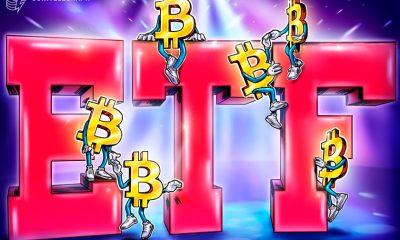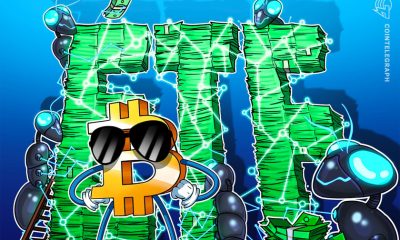Bitcoin
Tokenization, Explained

Tokenization has been one of the hottest buzzwords in crypto this year — learn everything about it in our ultimate guide
STOs are a fundraising platform that can facilitate tokenization.
Remember the initial coin offering (ICO) boom, when every project had its own “disruptive” token for anything one could ever imagine? The fundraising model was so inclusive that virtually anyone could participate in the sale.
Of course, the watchdogs didn’t like the idea of people raising millions of dollars on the back of some abstract, often poorly articulated idea on the internet and began to crack down on ICOs. In turn, issuers tried to outsmart regulatory requirements by arguing that their tokens were actually utility tokens and not securities, but the SEC wasn’t having it — remember the Howey Test?
In the end, it is not for issuers to decide whether their tokens have utility or not — according to the SEC, only bitcoin and ether are not securities among cryptocurrencies, due to their decentralized model of governance. The rest are security tokens, which are trying to present themselves as utility tokens instead. Thus, ICOs ignored the legal aspect, which partly explains their fiasco (according to a report, as much as 80% of ICOs in 2017 were scams).
Here, STOs make an entrance: a model similar to ICOs, but with a greater degree of compliance in mind. Powered by the concept of security tokens, STOs are actually backed by real assets and, unlike ICOs, are fine with the idea of paying taxes, following the regulator’s guidance and playing by other mainstream rules.
Again, STOs aim to be compliant, but the required regulatory frameworks aren’t there just yet. In fact, many countries have de facto banned STOs (along with cryptocurrency trading in general), including China, South Korea and India, just to name a few.
Other countries are still undecided as to how STOs should be regulated. For instance, Thailand’s Securities and Exchange Commission argued that Thai-related STOs launched in an international market would break the law.
Finally, some jurisdictions, such as Estonia, actually recognize security tokens and allow local companies to work with them. As a result, DX.Exchange, an Estonia-based crypto firm, has launched a trading platform that lets investors buy shares of popular, Nasdaq-listed companies — including Apple, Tesla, Facebook and Netflix — indirectly through security tokens.
More recently, DX.Exchange claimed an industry first with its launch of STO listings. Since March 2019, the platform allows investors to purchase security tokens using both fiat and major cryptocurrencies. To trade in security tokens reportedly requires investors to undergo an additional layer of KYC checks, in compliance with the European Union Markets in Financial Instruments Directive II.

















